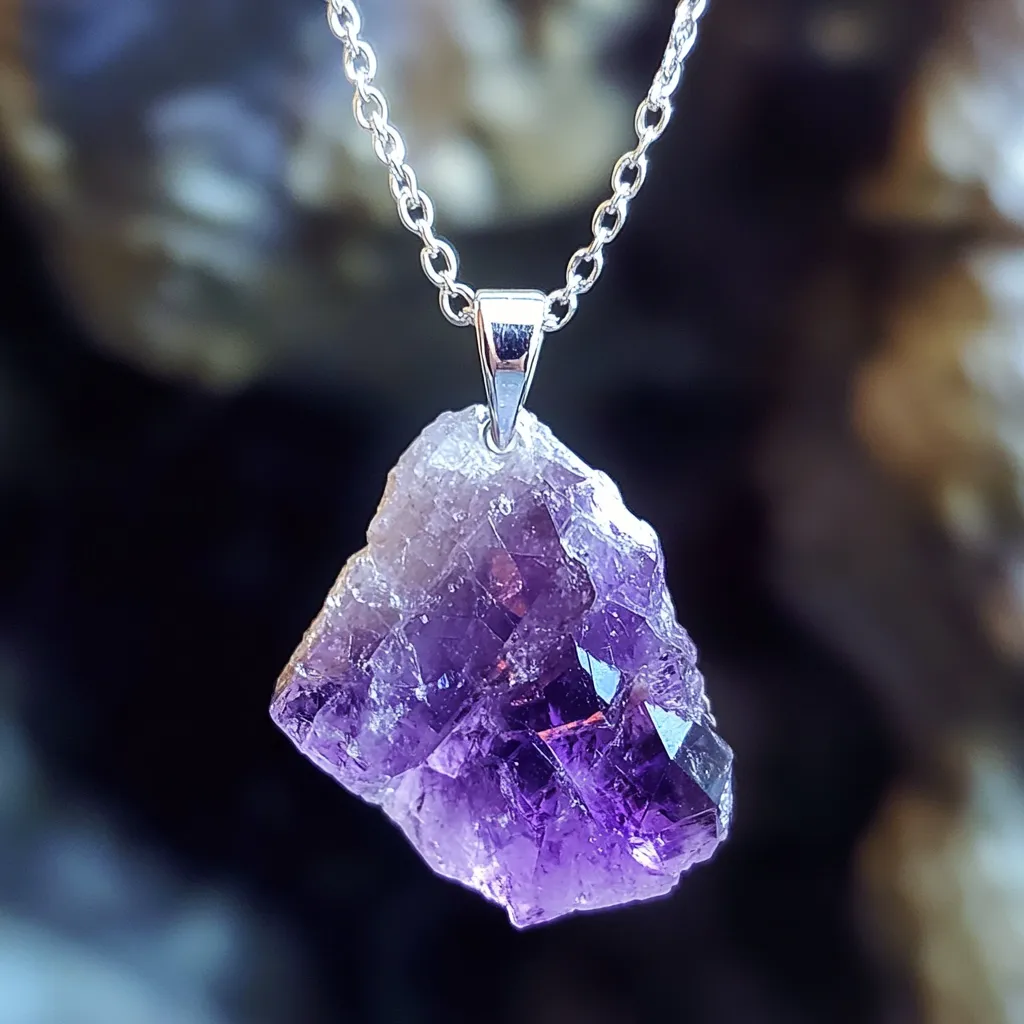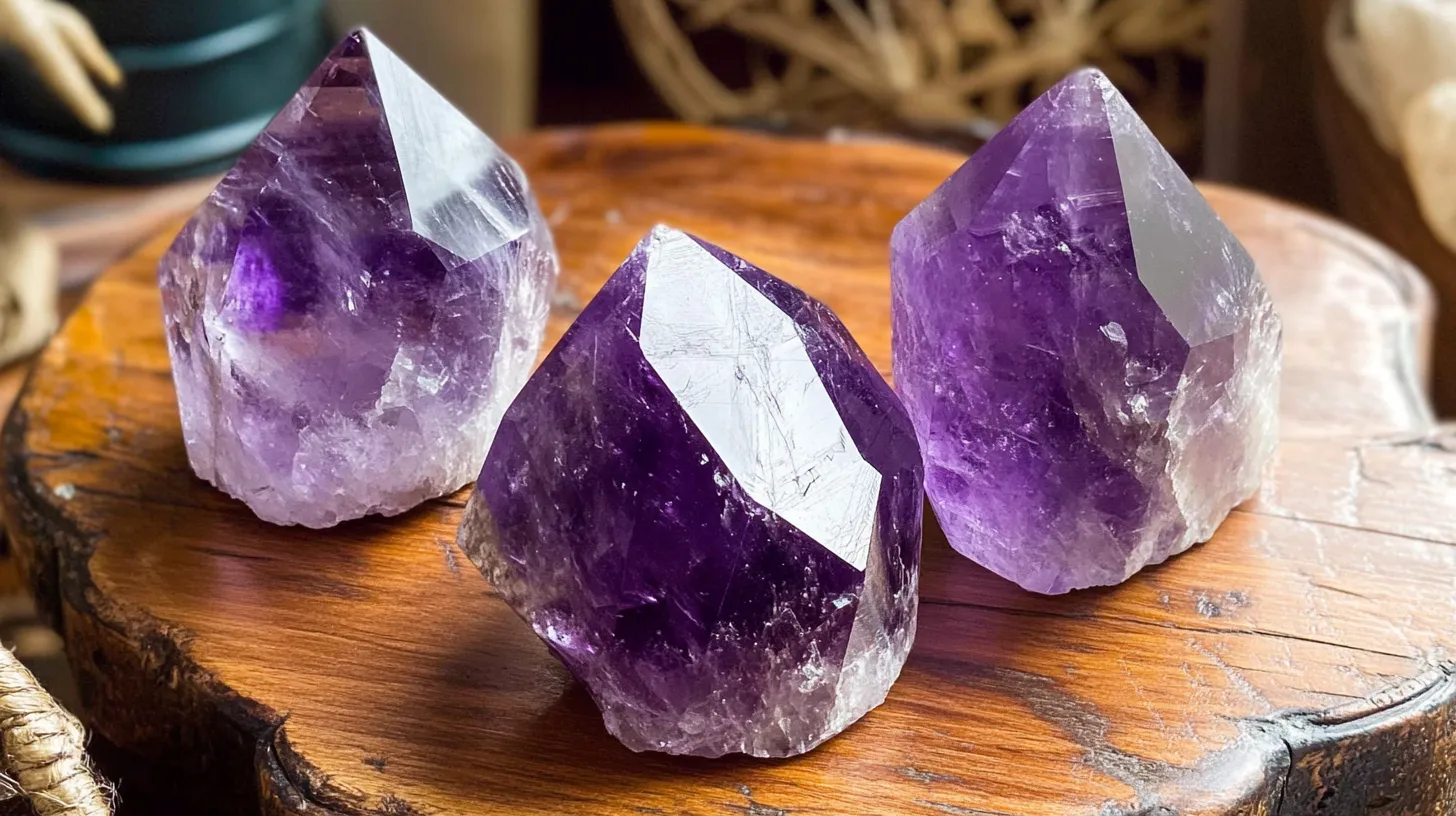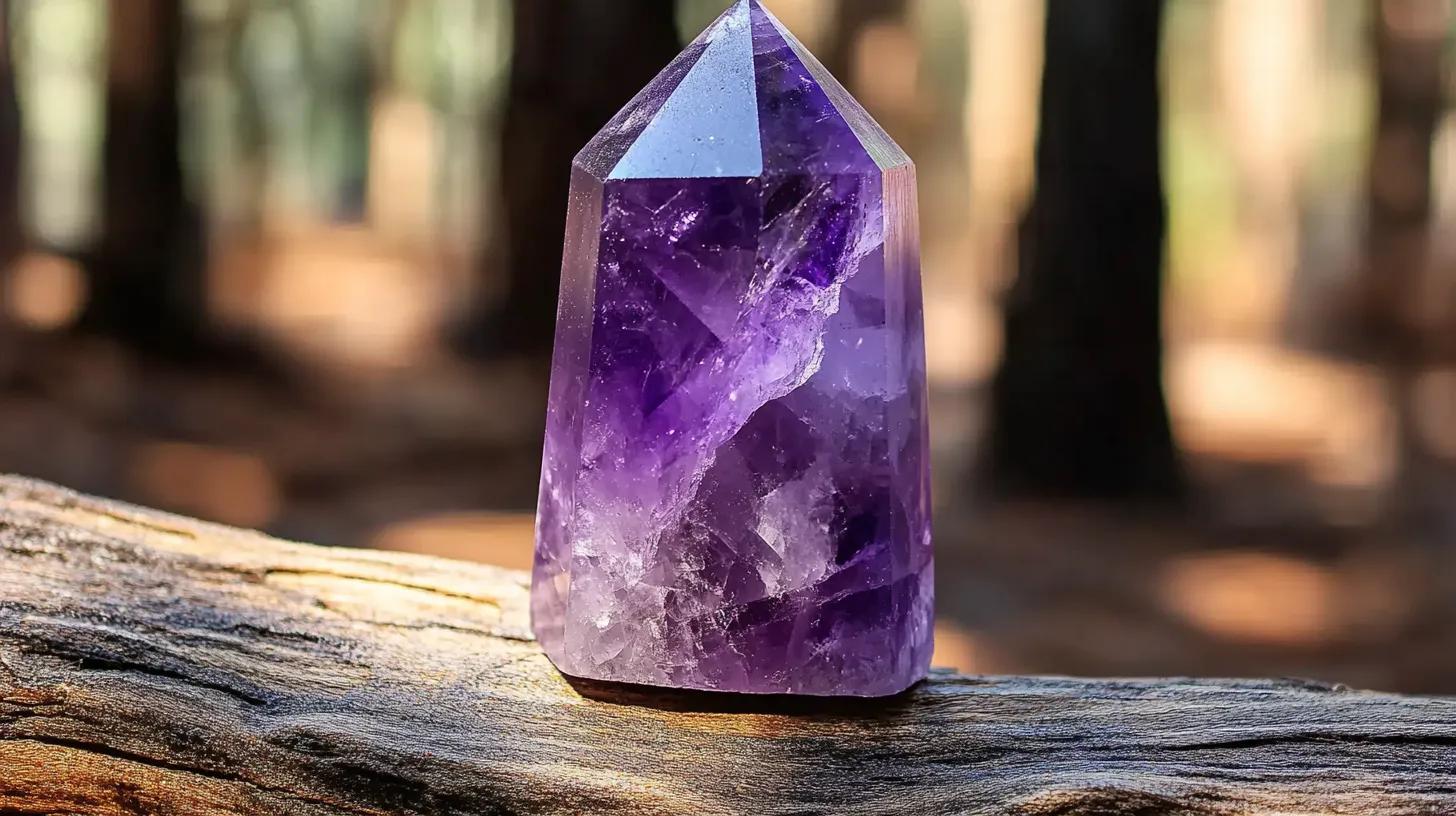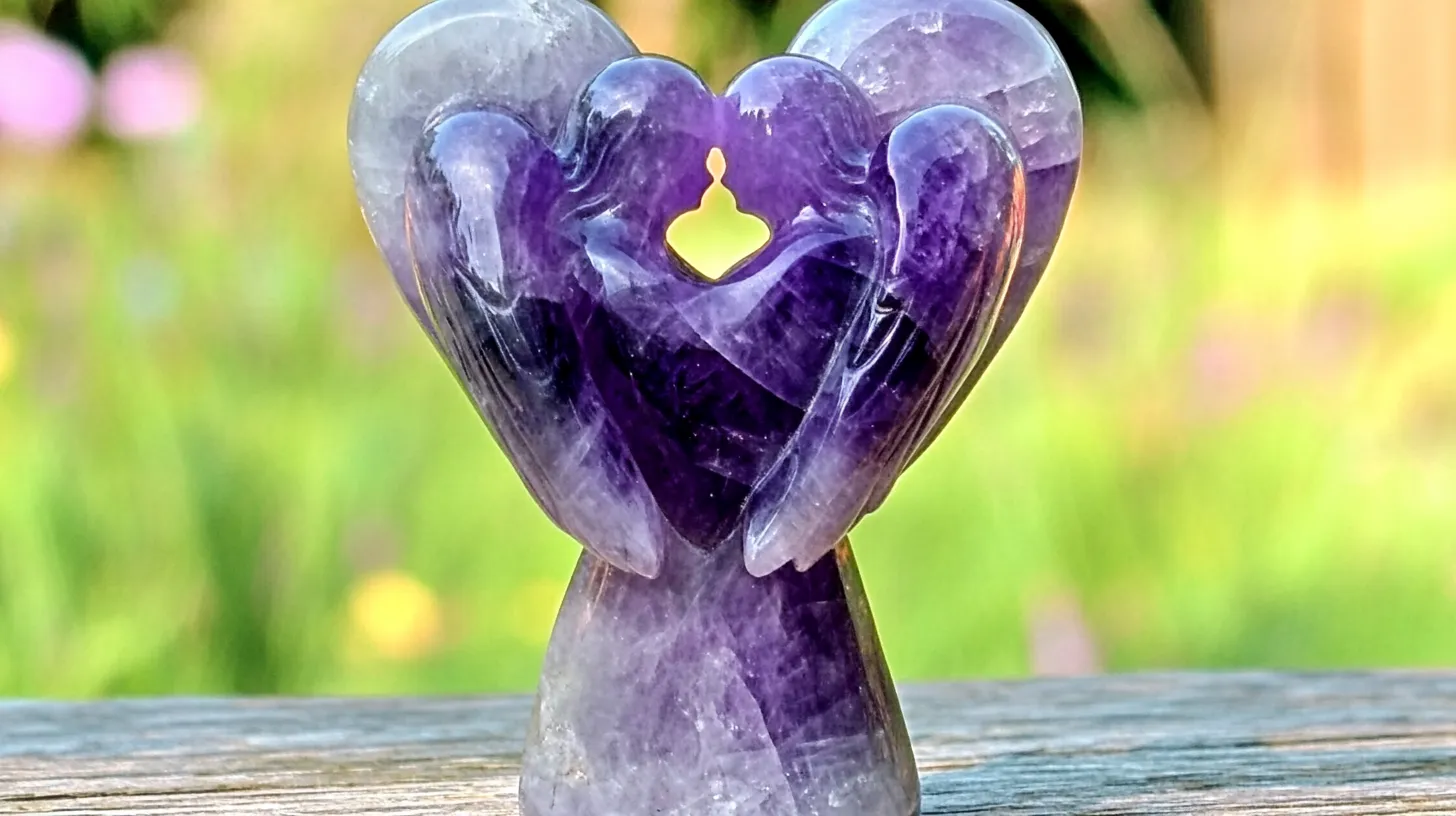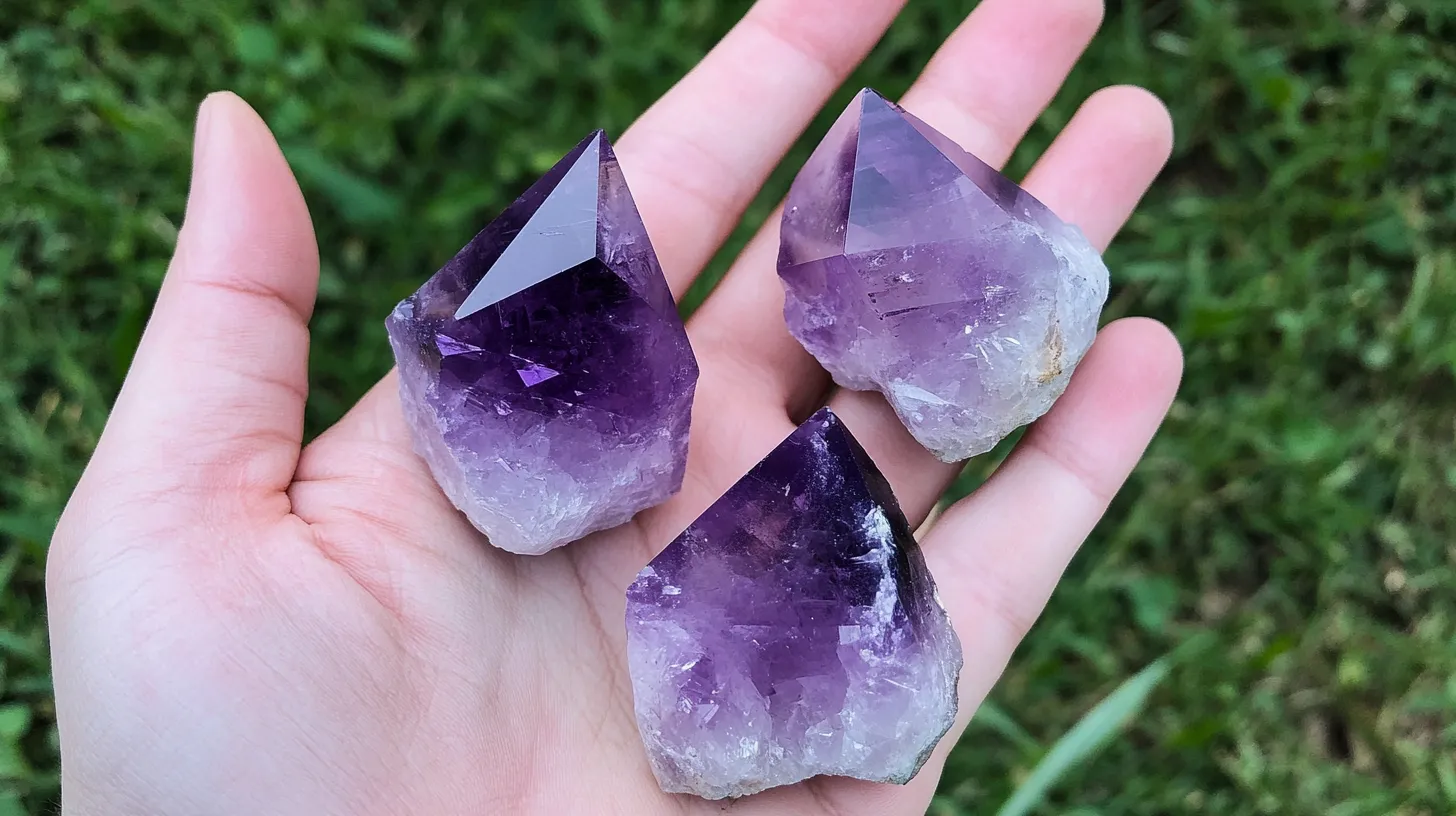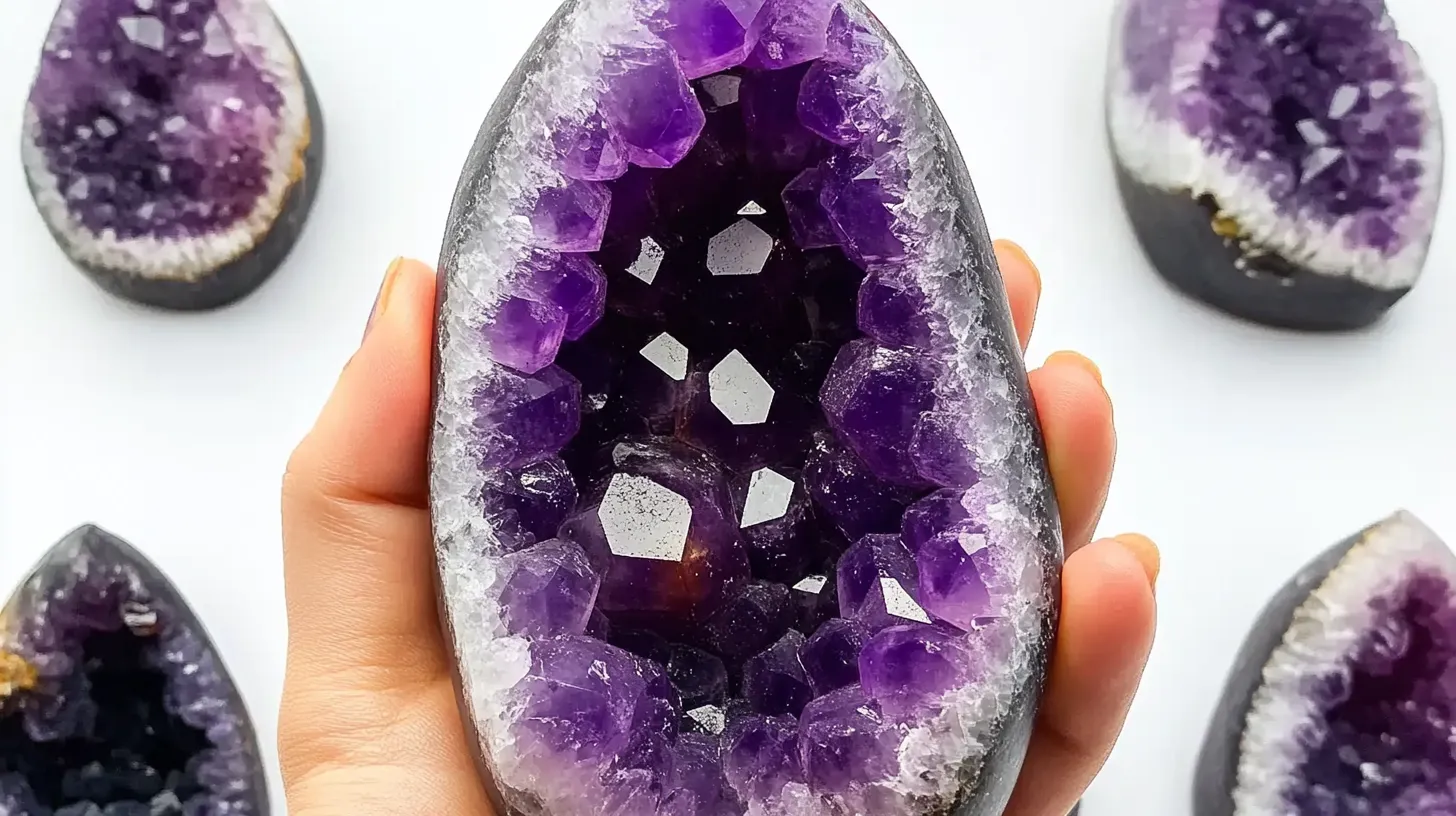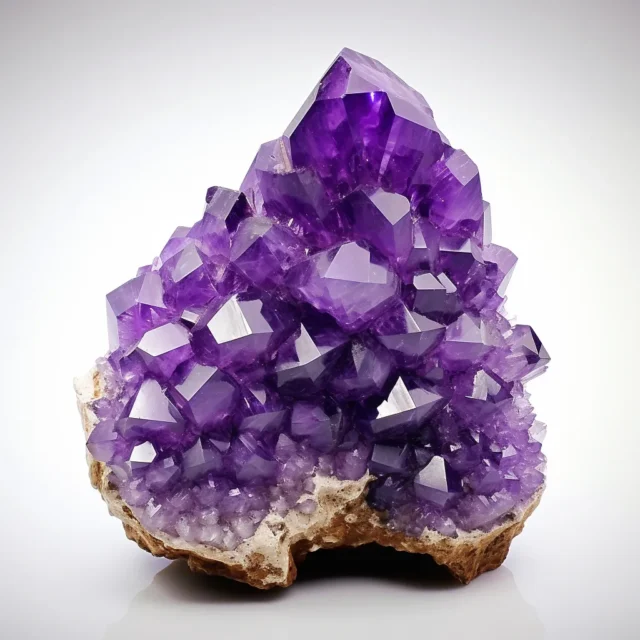

Is Amethyst Safe in Aquatic Environments?
Among the most often used and elegant stones available are amethyst. Its stunning purple colour and strong energy qualities are well-known. Whether you use it for jewellery, décor, or meditation, you could be wondering: Is amethyst safe in water? The response depends on several elements; hence, it is not a straightforward yes or no. This essay will explore various aspects of amethyst, including its scientific properties, its effects in different types of water, proper cleaning methods, and the safety of drinking amethyst-infused water.

Knowing the Composition and Water Resistance of Amethysts
Given a Mohs hardness value of 7, amethyst is a form of quartz that is rather hard when compared to other minerals. Generally speaking, stones above a 5 on the Mohs scale can withstand water contact without rapidly disintegrating or dissolving. But just because amethyst is hard does not imply it is entirely safe in water for long lengths of time.
| Property | Characteristics |
|---|---|
| Kind of Mineral | Quartz |
| Chemical Formula | SiO₂, or Silicon Dioxide |
| Mohs Durability | 7 (quite difficult) |
| Soluble Nature | Low but consistent exposure could erode it. |
Water itself is not the problem; rather, what is in the water counts. Over time, an amethyst’s structure and colour can change in response to minerals in water, heat, and even some chemicals.

Can One Clean Amethyst with Water?
While water will help you clean amethyst, you should follow some rules to maintain its quality. Although short-duration lukewarm running water is safe for rinsing your crystal, soaking it for too long may cause minor surface damage or a duller look. Make sure that the metal setting of your amethyst, should it be in jewellery, is also water-safe.

Effective Methods for Purifying Amethyst
| Method of Cleanliness | Secure for Amethyst? | References |
|---|---|---|
| Running Water | Absolutely. | There are only quick rinses. |
| Soak in Water | None. | May over time cause structural deterioration. |
| Soap and Water | True | Use moderate soap instead of strong chemicals. |
| Water Salinity | None. | Salt can do surface harm. |
| Moonlight Custodialism | Surely | This is an excellent method for cleaning without the need for water. |
If you wish to cleanse amethyst energetically, moonlight, sound vibrations, or smoke purification is a better choice than soaking it with water.

What Happens If You Leave Amethyst in Water for Too Long?
If you keep amethyst in water for too long—especially in salted or acidic water—you run the risk of surface dullness, minor cracks, or colour loss. Extended water exposure over time might degrade its structure, particularly in cases where it contains iron impurities that might oxidise.

Is Amethyst Safe in Various Water Types?
| Water Type | Secure for Amethyst? | References |
|---|---|---|
| Tap Water | Sure. | Short exposure is acceptable; nevertheless, steer clear of tough water stains. |
| Clean Water | Yes. | The best choice for washing is |
| Salt Water | Never | The material might degrade and dull the surface. |
| Heated Water | NO | The crystal might break with heat. |
| Rainwater | Yes. | Natural cleaning, but limited exposure only |
| Mineral Water | Indeed. | While generally safe, avoid prolonged soaking. |

Is Water Made from Amethyst Safe to Drink?
For either spiritual or medical purposes, some enjoy creating crystal-infused water. Though amethyst is not poisonous, allowing it to have direct contact with drinking water is not advisable. This is because natural amethyst occasionally contains trace minerals, particularly iron, which have the potential to leach into the water. Use the indirect infusion technique by placing the crystal next to your water bottle, rather than directly in the water.

